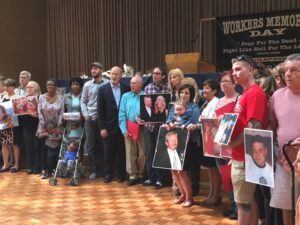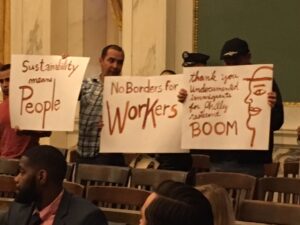The time has come to end the use of cash bail in Pennsylvania, says The Cost of Buying Freedom: Strategies for Cash Bail Reform and Eliminating Systemic Injustice, a new report from the Sheller Center’s Justice Lab and Redeemed PA, a community organization.
According to the report, the cash bail system discriminates on the basis of poverty, not dangerousness (as one interviewee noted, “Poor folks stay in jail and rich folks don’t”). And the result, for people who cannot afford even low bail, is not just loss of liberty; pretrial detention also makes it harder for them to assist in their defense, thus unfairly increasing the likelihood of conviction.
According to the report, the cost of keeping people in jail who don’t need to be there runs into the millions of dollars each year. Cash bail doesn’t accomplish its goal, since the likelihood that a defendant will return to court is not enhanced by the setting of a high bail figure. The system is also unnecessary: under state law, the most dangerous defendants can be detained without bail in any event. (And there’s other strange stuff; did you know, for example, that you’ll forfeit a percentage of your bail even if you’re found not guilty?)
Effective alternatives, including validated risk assessment tools and innovative supervision programs, are now in use in cities and counties around the country. Pennsylvania should follow the lead of those jurisdictions, say the report’s authors — students Adorah Nworah, Paige Joki, and John Farrell.
Discussions about cash bail are already underway in Philadelphia, which — as part of its criminal justice reform plan — has undertaken to “establish a robust range of alternatives to cash bail based on risk level.” And both candidates for District Attorney have been addressing the subject; Beth Grossman (R) reportedly supports the continued use of cash bail, while Larry Krasner (D) states that he will implement alternatives for those charged with nonviolent offenses. Hopefully, the findings of the report will contribute to these discussions — in Philadelphia and statewide.



 nering with immigrant chefs and taking its local dinner series nationwide.
nering with immigrant chefs and taking its local dinner series nationwide.